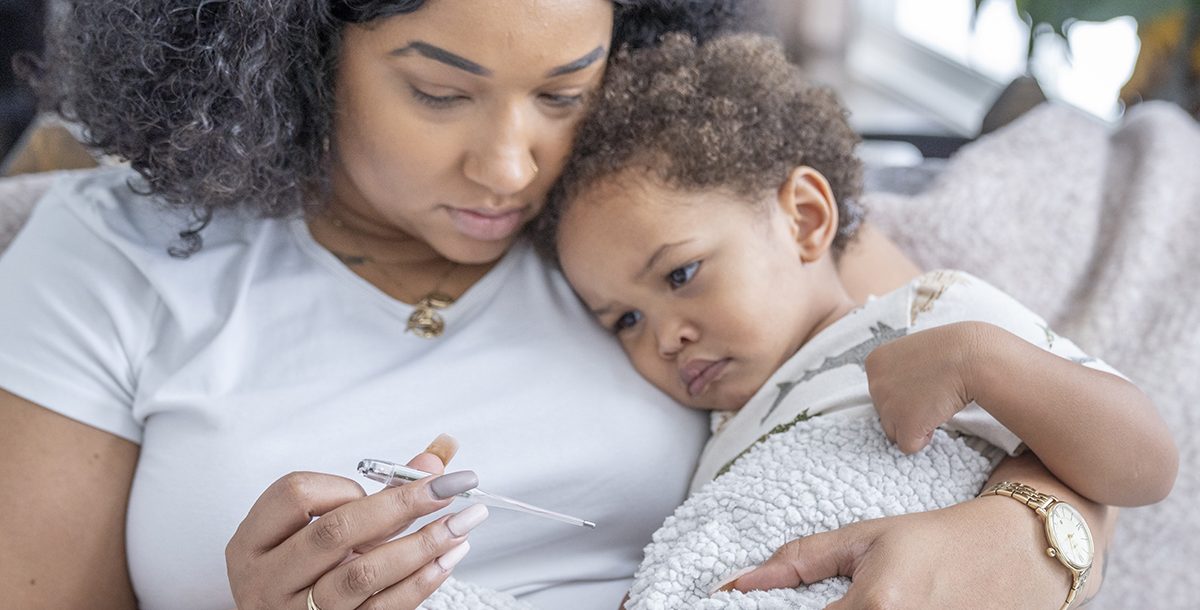Respiratory syncytial virus (RSV) is typically seen during winter and spring months. However, this year we saw a rise in reported cases during the summer and fall.
Last year, due to COVID-19 restrictions and closures, we saw a decrease in many respiratory infections, including RSV. However as schools, daycares and businesses reopened this year with fewer restrictions, RSV outbreaks have occurred out of season. And now, as we head into the winter months, it is important to understand how you can protect yourself and your family.
What is RSV?
RSV tends to be a mild virus with symptoms like a cold that gets better on its own after several days. However, for infants to 2 years of age and elderly adults over the age 65, it can be severe by causing bronchiolitis, a lower respiratory tract infection. Children with underlying heart or lung disease are at higher risk as well.
The recovery period for RSV typically lasts one to two weeks. Children under the age of 1 are at risk for other infections if not monitored, such as bronchitis and pneumonia.
People who are at greater risk of getting infected with RSV include:
- Children and adults born with other underlying heart or lung medical conditions
- Infants born premature
- People with weakened immune systems
What are the symptoms of RSV?
Mild symptoms begin four to six days after being infected and will continually get worse over the next few days. The following symptoms may indicate infection:
- Runny nose
- Sneezing
- Coughing/wheezing
- Trouble breathing, including apnea in infants
- Decreased appetite and activity
- Fever
- Irritability in young children
Haroon Hyder, MD, one of our primary care providers, advises parents to “look out for progression of serious symptoms, such as trouble breathing or your child becoming lethargic and/or dehydration.”
Dr. Hyder also encourages parents to discuss any of these symptoms with their family’s health care provider.
What are the differences between COVID-19 and RSV?
It may be difficult to determine if the person infected has COVID-19 or RSV. People can be infected with multiple viruses at once, but there are differences in how each virus affects the body.
Children infected with RSV tend to be more irritable and have a loss of appetite. Those who have COVID-19 may lose their taste and smell, whereas this does not happen with RSV. Adults are more likely to contract COVID-19, whereas children that are newborn to 2 years old are more likely to experience RSV.
If you or your child are showing symptoms, it is best to make an appointment with your primary care provider to determine which virus is causing the infection.
How RSV spreads
COVID-19 and RSV are alike in that they are spread through respiratory droplets from coughing, sneezing or physical contact with an infected person. Both viruses are also highly transmissible.
The most common way for RSV to spread is by direct contact. However, cleaning and disinfecting surfaces touched by someone with RSV is essential due to the virus being able to live on surfaces for many hours.
During the height of COVID-19 last year, people stayed home more often and when they had to go in public, they wore masks and practiced social distancing. Since RSV spreads similarly to COVID-19, we’ve seen the rise in RSV cases as these safety precautions have lessened.
Help us prevent the spread of RSV with these tricks
There isn’t an immunization to prevent RSV at this time. However, you can do your best to avoid RSV in the first place and help prevent the spread by:
- Regularly washing your hands
- Staying home if you are sick
- Avoiding touching your face
- Coughing and sneezing into your elbow
- Disinfecting surfaces often including toys and changing tables
Treating RSV
High-risk people may be prescribed medication by their health care provider to help relieve RSV symptoms, like nasal congestion and a fever. Drinking lots of fluids is also extremely important to prevent any severe dehydration.
If you or your child are experiencing symptoms of RSV and become dehydrated, have trouble breathing or symptoms that are worsening, contact your primary care provider right away.





